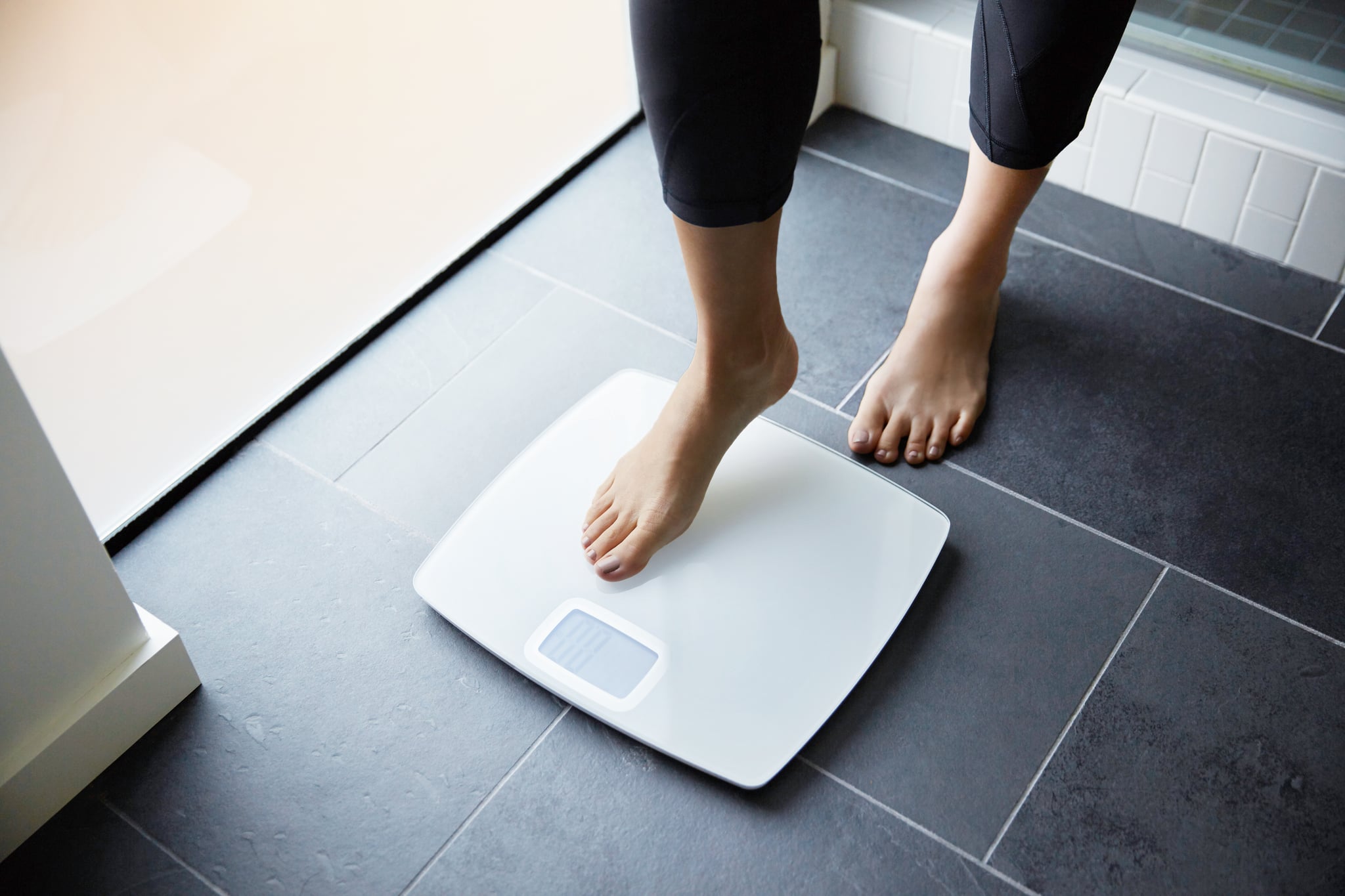
There's no one-size-fits-all method to losing weight or lowering your body fat percentage. The amount of body fat and weight you can lose in a given month will vary based on your current weight, diet, and activity level, to name a few variables that impact weight loss. To find out how much body fat and weight you can safely and realistically expect to lose in a month, POPSUGAR reached out to the experts.
How Much Body Fat You Can Expect to Lose"Under the assumption that nutrition is 100 percent during this process, it depends on the weight and body fat of each woman," said Stephen Cheuk, certificate IV Australian Institute of Personal Trainers certified trainer and founder of S10 Training in New York City. He explained that a woman who is already relatively lean (18 to 28 percent body fat) and strength trains can lose anywhere from 0.5 to 0.8 body fat in a single week. "If a woman is on the heavier side in weight and has a higher body fat percentage (over 28 percent), she could lose a minimum of one percent body fat a week," Cheuk said.
How Much Weight You Can Expect to LosePratik Patel, MS, RD, CSSD, CSCS, New York Giants director of performance nutrition and assistant strength and conditioning coach, told POPSUGAR, "If you can steadily lose anywhere from 1/2 pound to one to two pounds a week, you know you can control it." According to Patel, a realistic and healthy way to achieve this would be to implement a calorie deficit.
One pound comes from about 3,500 calories, and if you eat 500 fewer calories than you burn from working out and other physical activity every day for a week, you'll be down one pound. By increasing this deficit to 750 calories a day for one week, you'll have lost one and a half pounds. Eating 1,000 fewer calories than what you burn with exercise will put you at a two-pound loss in a single week. This means that in a month you could lose anywhere from four to eight pounds. Patel explained that losing no more than two pounds a week will ensure that you're burning fat instead of breaking down your muscle tissue.
Emmie Satrazemis, RD, CSSD, nutrition director at Trifecta, said, "Weight loss is strongly determined by one's age, starting body weight, their fitness levels, current body composition, and overall health." According to Satrazemis, people who have more weight to lose and who currently consume a high calorie diet may lose more weight and quicker because "it is easier to cut high amounts of calories from a diet that is high in calories to begin with."
For sustainable weight loss, she recommends decreasing one's caloric intake by 15 percent and absolutely no more than 20 percent a day. She explained that going from eating 2,000 calories to 1,700 calories a day will result in a little over half of a pound of weight loss per week. "For some, losing one to two pounds a week is not realistic, while others may lose even more than that," she said. Emmie explained that consistent exercise can help you lose more weight but it may also increase your appetite. Because of this, she advises adjusting your caloric intake to accommodate an increased appetite.
Remember, before making any changes to your diet, please consult your doctor.
Image Source: POPSUGAR Photography / Sheila Gim
No comments:
Post a Comment